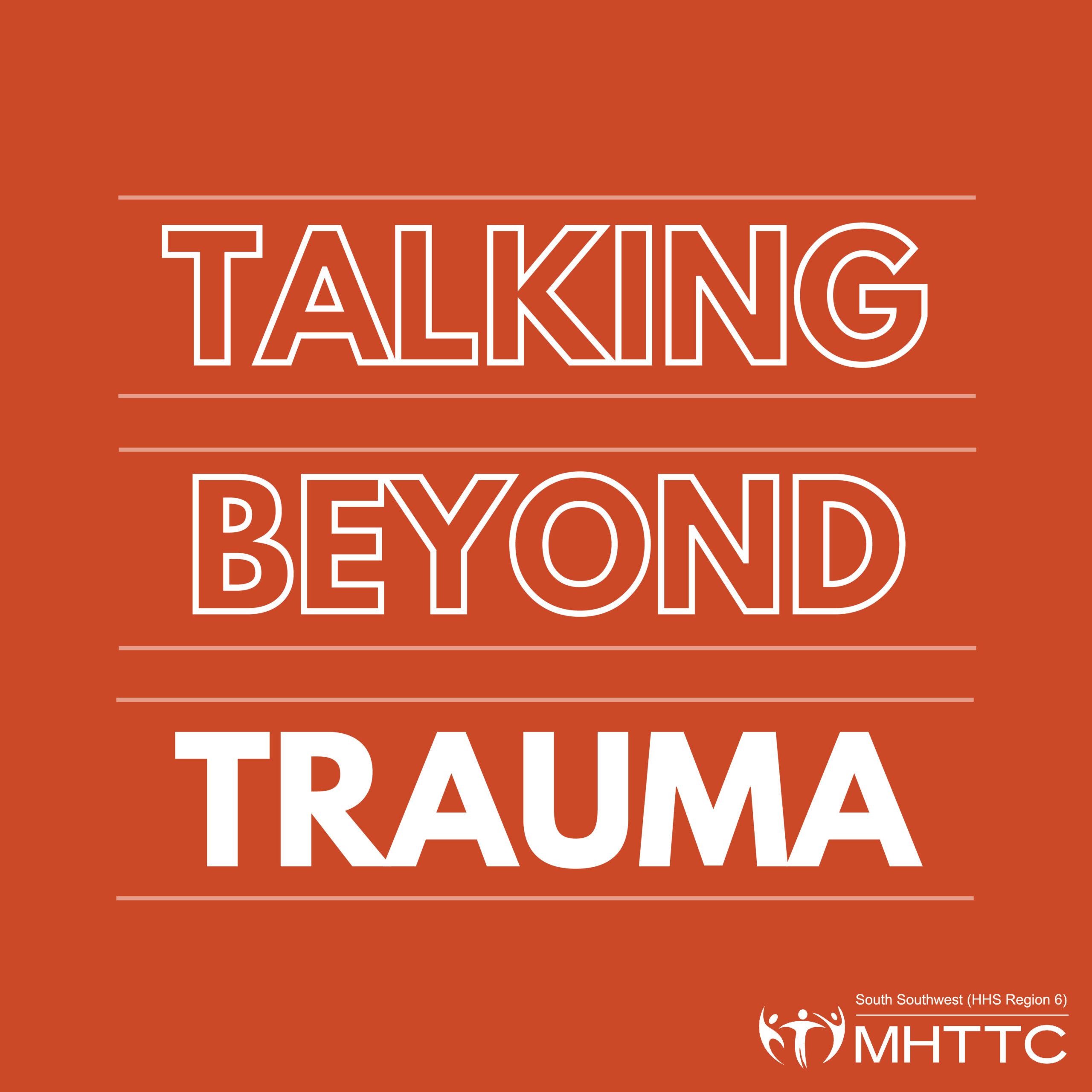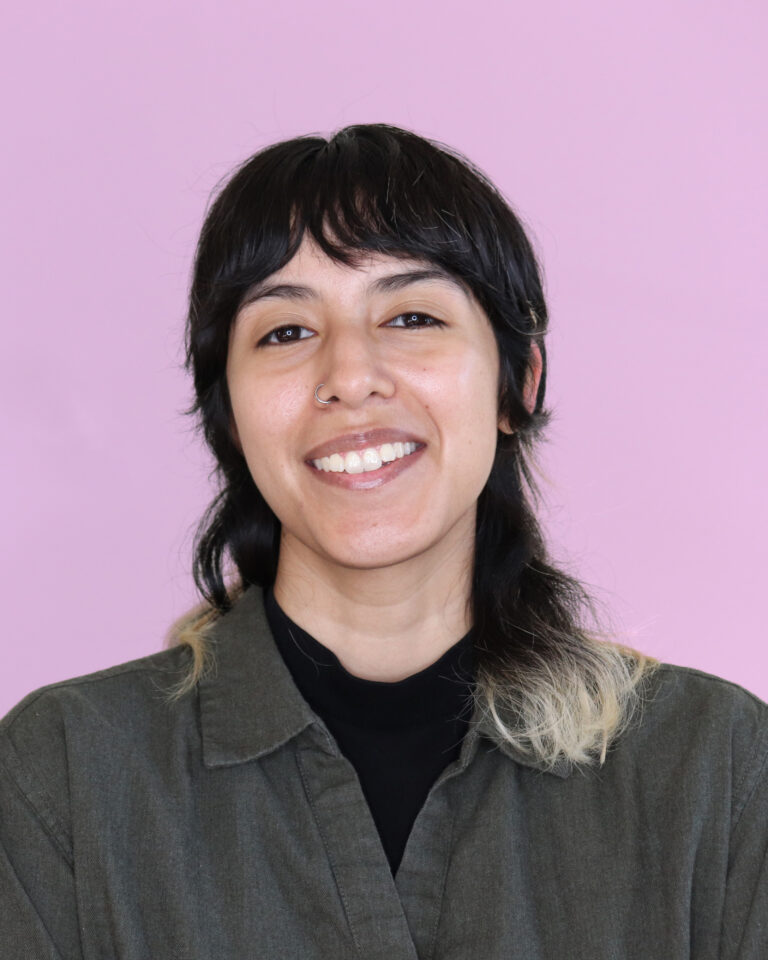Home > New Year, New Conversations: Talking Beyond Trauma Podcast is Back
By: Raven Garza (she/they)

We’re excited to kick off the second season of Talking Beyond Trauma with Mordecai Dixon and Dr. Natalie Fikac. Last season, Mordecai was joined by Dr. Jacob Ham to delve into trauma-informed cultures at human service organizations.
Mordecai and Natalie are both senior administrative program coordinators who support the South Southwest Mental Health Technology Transfer Center (MHTTC).
In season two, our hosts will focus on the theme of mindful self-compassion, answering questions such as:
What is mindfulness in simple terms?
How can school staff practice mindfulness?
Where do self-awareness and self-compassion intersect?
What are the results of self-compassion in our work lives?
And much more
Check out a few snippets from Mordecai and Dr. Fikac’s insightful conversation in season two's first episode.
Natalie talks about her extensive experience in education and how she came to work in the mental health field. As a “military brat,” Natalie would move every few years— having to relearn and find new friends along the way.
A key part of her story was in third grade when her teacher Mrs. Connor made a significant impact on her life. From that point forward she knew she wanted to be a teacher. While working as an educator, Natalie faced challenging life events that led her to pursue roles related to mental health and “helping the helpers.”
“I’m super fortunate and blessed to be in a place where I can actually take good care of myself and talk to others about taking care of themselves,” Natalie shared.
When someone says mindfulness, you might picture someone doing yoga on a tranquil beach. In reality, you can be mindful in any situation (ex. while you’re in the shower or stuck in traffic). According to Natalie, mindfulness means being aware of what’s happening in the moment. That includes being conscious of your thoughts, feelings, and physical body.
For many, that’s easier said than done. Mordecai brings up his struggles with mindfulness and feeling like he couldn’t reach this mysterious idea of what it should be. “I can remember hearing about mindfulness early in my undergraduate experience, and I was convinced that magic was going on in another room,” he said. “In the end, I walked away thinking that only certain people could be mindful.”
Natalie admits that she also had similar misconceptions in the past. She offers another way to think about being mindful:
“Whatever is happening, you’re noticing it but you’re not judging it. We know what we’re experiencing while we’re experiencing it— meaning we’re not thinking about what’s coming or what’s behind us. We are where our feet are.”
What’s a good roadmap for school staff who say they’re bombarded with things that interfere with mindfulness tools?
Natalie points out that there’s strength in acknowledging how difficult it is to be a professional educator today. It’s important to have a safe space to share what you’re feeling. Educators out there, have you had the opportunity to talk about how your life has changed after the COVID-19 pandemic?
“A lot of school leaders have decided not to talk about that because there’s a fear that what’s shared by our professional educators won't be able to go back into a box and sent to do the hard work,” Natalie noted. “All we really need is someone to be an empathetic ear.”
As Natalie puts it, empathy is a superpower that’s closely related to mindfulness and self-compassion.
There are many more thoughtful conversations to hear from Mordecai and Natalie. We hope you’ll join us on the next episode.
Subscribe to get new episodes directly to your inbox!
 Raven Garza (she/they) is a Content Writer for the Texas Institute for Excellence in Mental Health (TIEMH) and graduated from UT Austin with a BA in English Literature.
Raven Garza (she/they) is a Content Writer for the Texas Institute for Excellence in Mental Health (TIEMH) and graduated from UT Austin with a BA in English Literature.
Raven is passionate about mental health advocacy and volunteers for non-profits that support youth and people of color. In their free time, they love going to live shows around Austin, reading manga, writing about Latine culture + queer experiences, and taking solo trips around the world.